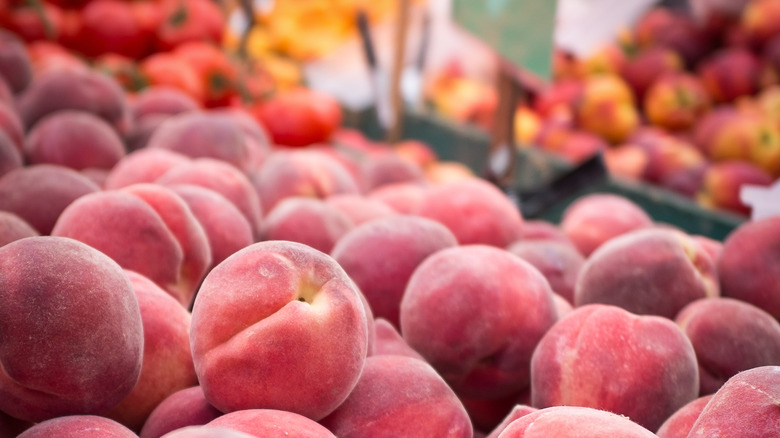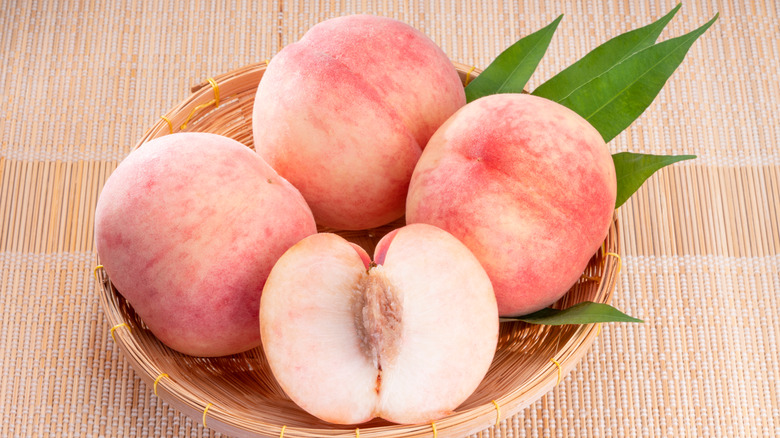Is There A Real Difference Between White And Yellow Peaches?
In many parts of the United States, there's a much anticipated time of year: the peach season. However, any peach lover knows that not all peaches are created equal. If you're not familiar with the different varieties, take a few minutes to better understand them and their uses. Widely grown in the United States, yellow peaches have a fuzzy, pinkish-orange outside and bright yellow flesh. Compared to white peaches, they have a strong, sometimes slightly acidic flavor. Cook's Illustrated reports that their hardy flesh and strong flavor make them ideal for baking.
While white peaches look similar on the outside, the flesh is soft and white. According to Specialty Produce, the fruit originated in China, with a long history of cultural significance. In Chinese mythology, peaches represent health and longevity as they grow on the tree of life and are eaten by the gods to retain immortality. It's easy to see why. Chock-full of vitamin C with a sweet, delicate flavor and a scent that is sometimes described as floral, the white peach is a healthy food with a heavenly taste.
While 80% of peaches grown in China are white, they're less popular in the West — partially because they bruise easily and are harder to transport. In addition, while yellow peaches taste great in pies, cobblers, and even grilled, white peaches are too soft and easily turn to mush. However, they're great for eating raw; you can also use overripe peaches for sweet, refreshing ice creams and smoothies.
If you're a canner, knowing the difference is important for your safety
While the worst thing that can happen if you decide to bake with white peaches is a mushy cobbler, PennState Extension states that canning them can be downright dangerous. With a pH of above 4.6, white peaches are considered low-acid fruits. That's what causes the sweet, delicate flavor that makes them so delicious. However, it also means that the bacteria which cause harmful — and sometimes deadly — infections like botulism, aren't destroyed in the canning process. So while yellow peaches can be canned with a water bath or pressure canner, PennState Extension warns that you should avoid canning white peaches altogether.
However, you still have options if you want to preserve white peaches for colder months: PennState Extension suggests freezing them as an alternate preservation method. The Spruce Eats reports that you can also experiment with dehydrating peaches — but keep in mind that dried fruit has been linked to salmonella outbreaks.

